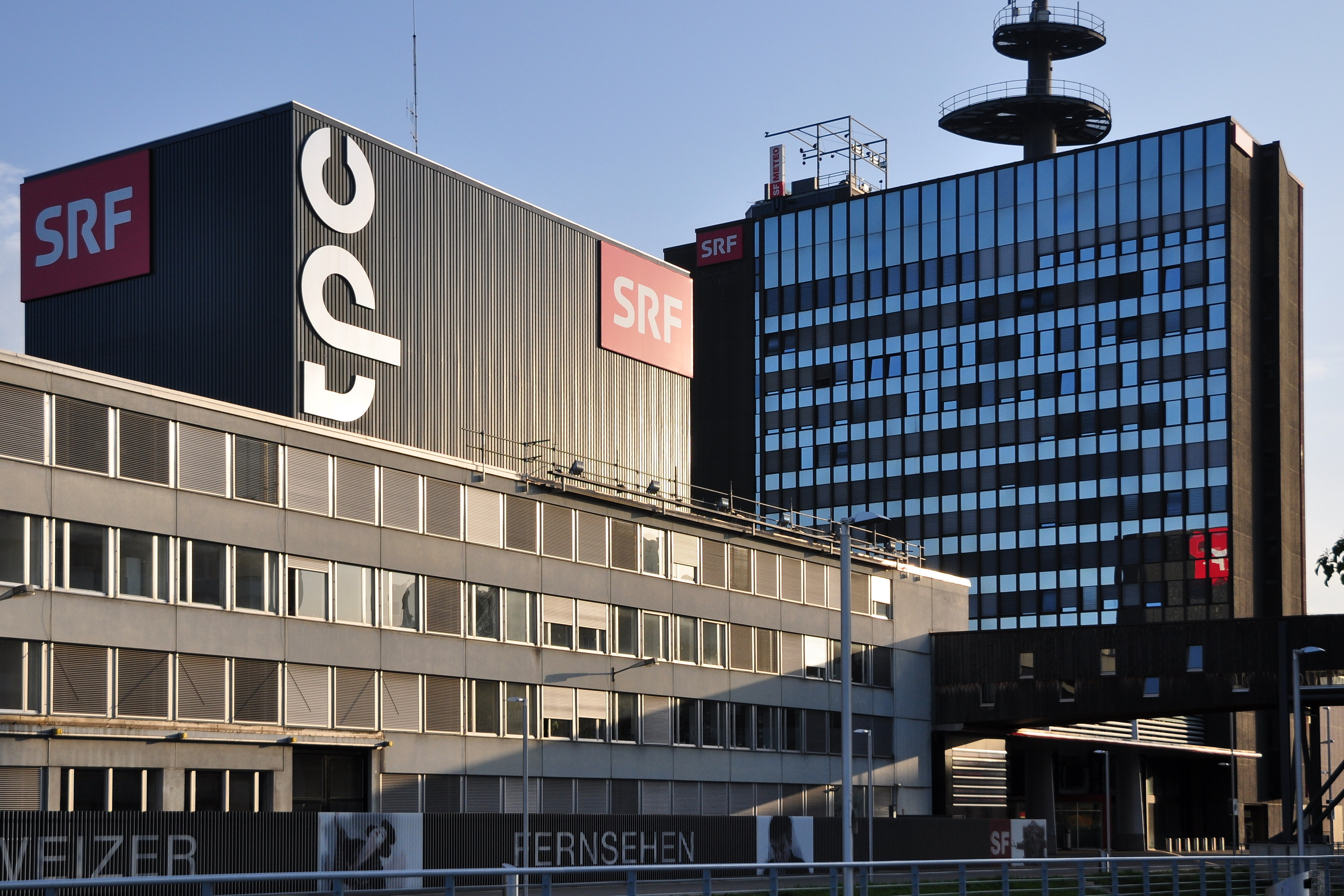More than two years after the historic “No Billag” referendum, the Swiss Broadcasting Corporation, SRG SSR, remains the bedrock of public service media. However, the financial reforms emanating from the referendum have resulted in funding woes that are expected to continue into 2024, particularly in light of falling advertising revenues, reduced licence fee income, and the COVID-19 pandemic.
By Desilon Daniels
Here, we take a look at SRG SSR’s role in Swiss society, the latest funding developments and the cost-cutting measures it has implemented since the 2018 referendum.
The role of SRG SSR
SRG SSR — Switzerland’s public broadcasting corporation of four regional broadcasters and one online news service — is a key example of strong public media in Europe. With values centred on diversity, quality, independence, responsibility, dialogue, and creativity, SRG SSR has made its commitment to public service well known. The broadcasting organisation’s geographical and cultural reaches also ensure that Switzerland’s language regions, and international audiences, are catered for.
The public broadcaster is unique in what it offers Swiss society: it produces high-quality and relevant content that would otherwise be unavailable through the small Swiss media market and does so across all language regions in the country. With most of Switzerland’s population and wealth concentrated in the German-speaking areas, there are concerns that the wider media industry and content would skewed towards that audience if SRG SSR failed to exist. The broadcaster executes its own equalisation system where the German-speaking areas generate 73% of its revenue but retains 43%. In turn, the French-speaking region generates 23% and receives 33%, the Italian-speaking region generates 4% of SRG SSR’s income but receives 22%, and the Romansch-speaking region receives 2% of the revenue. This system is designed to ensure that all regions receive proportionate funding and programming.
When it comes to reach, the broadcaster’s television channels and its radio stations reach 60% and 61% of the Swiss population every week, respectively. Meanwhile, 33% of Swiss population use SRG SSR’s online services every week.
However, despite its important role in Swiss society, the public broadcaster faces ongoing threats to its funding – and ultimately its public service function – which began with the “No Billag” referendum in 2018 and the resulting cost-cutting initiatives.
Cost-cutting measures
SRG SSR says it is the largest media house in Switzerland, with a turnover of CHF1.65 billion. The organisation is funded by a combination of a licence fee and revenue from commercial offerings, such as sponsorships and advertisements. The licence fee is its primary source of funding, accounting for more than 75% of its income. But this licence fee faced a major threat in 2018 with the “No Billag” referendum, where the Swiss public voted on whether to remove the fee for radio and television. Removing the fee would have primarily impacted SRG SSR, which benefits from 95% of the fee, with the remaining 5% going to 34 private radio stations and TV channels. However, the Swiss public showed their support for public broadcasting and 71.6% of voters rejected the removal of the fee.
Read more: Insight | The “No Billag” Swiss Saga
While this was ultimately a win for SRG SSR – and reinforced the value of public media in Switzerland – the referendum had consequences. Shortly after the results were announced, the broadcaster said it would “adjust to a new financial framework and meet society’s new needs”.
SRG SSR revealed that it would implement an efficiency-boosting and reinvestment programme from 2019 to 2024, with three reform packages. One major initiative was a cost-cutting reorganisation to save 100 million francs. SRG SSR also said that it would no longer broadcast advertisements in its evening feature films nor would it publish online advertising, particularly regional advertising aimed at specific target groups to avoid deepening competition with regional media.
The public broadcaster also changed its implementation of the licence fee and, from 1 January 2019, a new “device-independent” radio and television fee was applied on households and companies. Previously, the fee only applied to households with traditional devices like televisions and radios. The new fee saw a reduction in the overall cost for consumers – from CHF 451 to CHF 365 – but now covered all households where devices such as smartphones, computers, and tablets were used.
Latest developments
Despite its cost-cutting initiatives, SRG SSR continues to face funding challenges. In April 2020, parliament agreed to increase the broadcaster’s funding by CHF50 million to CHF1.25 billion per year. This parliamentary-approved funding followed a licence fee income fall of CHF50 million at the end of 2019 and ever-declining advertising revenues, exacerbated by the COVID-19 pandemic.
However, Director-General Gilles Marchand does not foresee this additional funding as sufficient to cover future lost revenues. The broadcaster must save a further CHF50 million by 2024 and further job cuts are inevitable, Marchand was quoted as saying in September.
Meanwhile, the fee will be further reduced in 2021, from CHF 365 to CHF 335, due to a higher than expected number of taxable households and fewer exempted households, the communications ministry has said. About 93% of companies would also see reduced fees from 2021. The federal price watchdog, Stefan Meierhans, also recommended the licence fee be subjected to another review in two years’ time and believes there is the possibility of a further reduction for 2023 and 2024.
While cost-cutting measures can partly be seen as a response to those that voted for “No Billag”, there are concerns that the impact of further cuts to SRG SSR could diminish its ability to continue providing an essential and effective public service across all of Switzerland. The Public Media Alliance will continue to observe developments in Switzerland.
Header Image: SRG-SSR building in Zurich. Credit: Roland zh/Creative Commons
Related Posts
28th April 2020
Swiss public broadcaster faces financial pressures in wake of Covid-19
SRG SSR, faces financial pressures…
